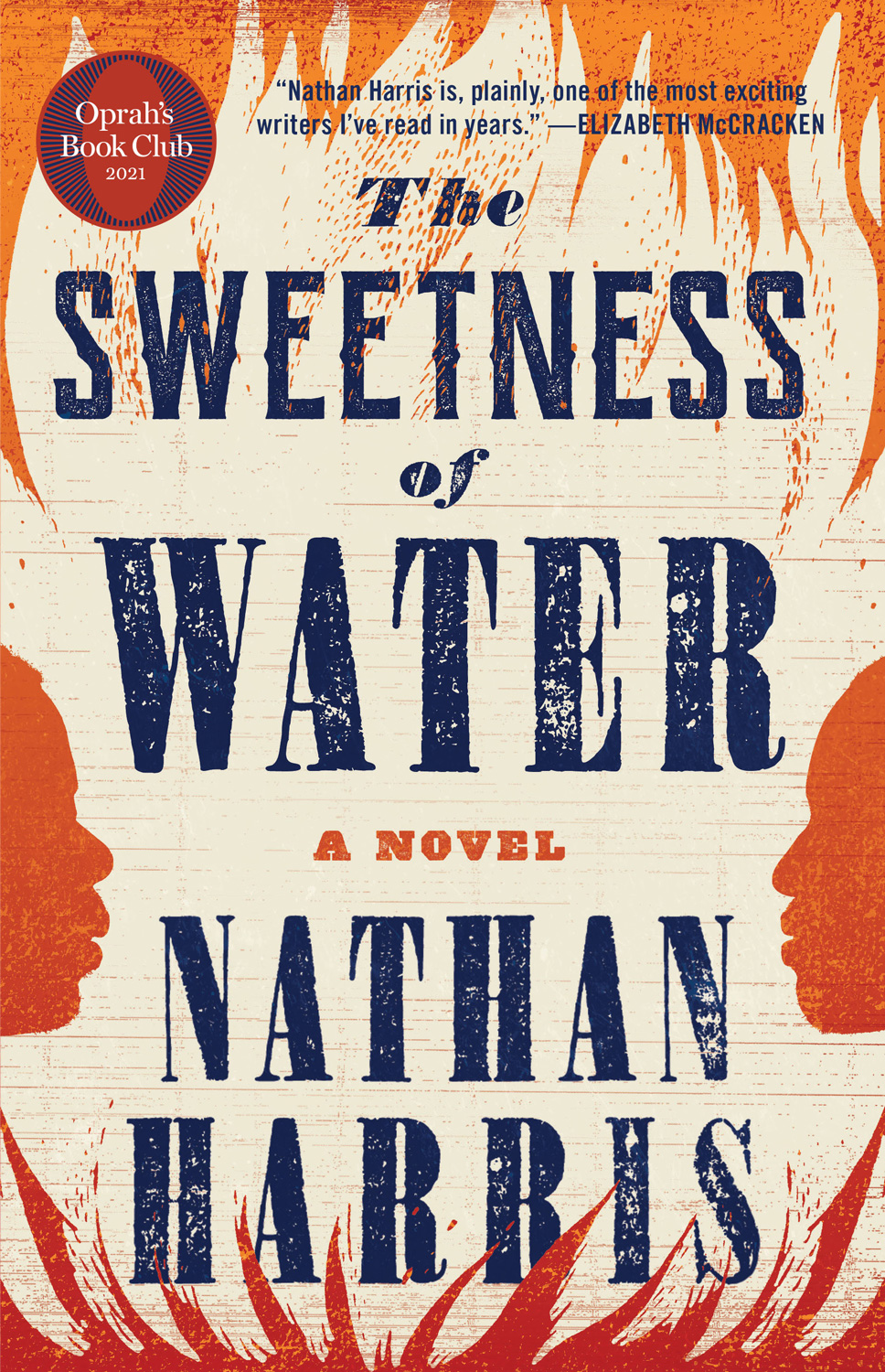The hives came shortly after Nathan Harris’ editor told him there was big news about his debut book, The Sweetness of Water. His mind went right to thinking the big news was bad news, he tells Eugene Weekly. He worried so much, he says, he developed hives and had to go to an urgent care.
While sitting in his car in the parking lot, he received a phone call.
“‘Nathan, this is Oprah,’” he remembers her saying. “We just had this long talk about how much she loved the book, and she had all these parts underlined and all these questions.”
And she told him she wanted his book to be her book of the month for June 2021.
Born and raised in Ashland and an alum of the University of Oregon, Harris, 29, says being a writer was his only plan in life. Ever since Oprah featured The Sweetness of Water, it’s been an instant success, even breaking into the New York Times bestseller list for the first two weeks of July. He attributes this to the book being relatable to readers while providing a diverse perspective at the same time.
And his meteoric rise in the literary world is similar to how quickly Harris developed as a writer at the UO, his creative writing professor Jason Brown says.
Published June 2021, The Sweetness of Water tells two parallel stories during the tailend of the Civil War: two Black brothers freed by the Emancipation Proclamation trying to save enough money to travel to the north and reunite with their mother, and two male Confederate soldiers trying to hide their love for each other.
“A lot of the time you read about the Civil War and then you jump right into Reconstruction” he says. “I thought there was so much unseen in the day-to-day, in between. It was such a unique time.”
Harris has known he wanted to be a writer ever since he was young, he says, and it was one of the few things that he was good at. “I was terrible at math and science.”
While growing up in Ashland, he says he read Charles Frazier’s Cold Mountain for a high school class that sparked an interest in the American Civil War.
Although Harris says he read a lot about the period, he didn’t get bogged down with minute detail — like what sort of buttons they wore. “I wanted it to get right, accurate and authentic,” he adds. “I also had to give my book space to let it flourish on its own.”
He says he wrote the book over the past two and a half years but wrote the first chapter while an undergraduate at the UO.
After submitting an early draft of the chapter to Brown, an associate professor at the Creative Writing Program and a mentor to Harris, the author notes that Brown told him, “‘You might have gold if you finish this.’ And he was right.”
Harris was in the first class the professor ever taught at the UO, an intermediate fiction class, Brown says via email. He never spoke in class but frequently talked with Brown during office hours, he adds. “When we look back at those writers who burned brightly very early in their careers, it wasn’t that they skipped their apprenticeship and came out of the box as geniuses. They had abbreviated apprenticeships — they simply improved faster than everyone else,” Brown says. “That was the case with Nathan.”
Within a few years at the UO, Harris was writing publishable short stories, Brown says, but as he grew as a writer, short stories were likely to make him feel boxed in. The early iteration of The Sweetness of Water had depth and promise, he adds, and was reminiscent of the work of author Marilynne Robinson with its mix of history, character and language. “It can be quite astonishing to witness a young man create a work of art that is wiser than his years — that is probably wiser than he is at that point,” Brown says. “That’s the miracle. As a teacher, you don’t get to see it too often.”
After graduating from the UO in 2014, Harris says he finished Sweetness of Water while attending graduate school at the University of Texas at Austin’s Michener Center for Writers.
Sweetness of Water has become an overnight sensation, which has been surreal, Harris says. “The effect of Oprah has just been huge,” he says. “It’s a wonderful thing that she does for books. It’s wonderful for the authors, but also for the literary community.”
But he says what has attracted people to the novel — including Oprah — is that it’s “a communal novel,” meaning that readers can see a cast that reflects themselves but at the same time experience the lives of people who are unlike them.
“It’s resonating because it involves such a diverse cast while speaking to elements of trauma of our nation and trying to rise above it. And uplifting one another during the darkest of moments and succeeding and not succeeding and just trying to make it through the world,” Harris says. “I think it speaks to very trying times we’re living in now but through the lens of the past.”
Nathan Harris talks with Oprah July 23 Apple TV+. The book is available at Tsunami Books.
A Note From the Publisher

Dear Readers,
The last two years have been some of the hardest in Eugene Weekly’s 43 years. There were moments when keeping the paper alive felt uncertain. And yet, here we are — still publishing, still investigating, still showing up every week.
That’s because of you!
Not just because of financial support (though that matters enormously), but because of the emails, notes, conversations, encouragement and ideas you shared along the way. You reminded us why this paper exists and who it’s for.
Listening to readers has always been at the heart of Eugene Weekly. This year, that meant launching our popular weekly Activist Alert column, after many of you told us there was no single, reliable place to find information about rallies, meetings and ways to get involved. You asked. We responded.
We’ve also continued to deepen the coverage that sets Eugene Weekly apart, including our in-depth reporting on local real estate development through Bricks & Mortar — digging into what’s being built, who’s behind it and how those decisions shape our community.
And, of course, we’ve continued to bring you the stories and features many of you depend on: investigations and local government reporting, arts and culture coverage, sudoku and crossword puzzles, Savage Love, and our extensive community events calendar. We feature award-winning stories by University of Oregon student reporters getting real world journalism experience. All free. In print and online.
None of this happens by accident. It happens because readers step up and say: this matters.
As we head into a new year, please consider supporting Eugene Weekly if you’re able. Every dollar helps keep us digging, questioning, celebrating — and yes, occasionally annoying exactly the right people. We consider that a public service.
Thank you for standing with us!

Publisher
Eugene Weekly
P.S. If you’d like to talk about supporting EW, I’d love to hear from you!
jody@eugeneweekly.com
(541) 484-0519

